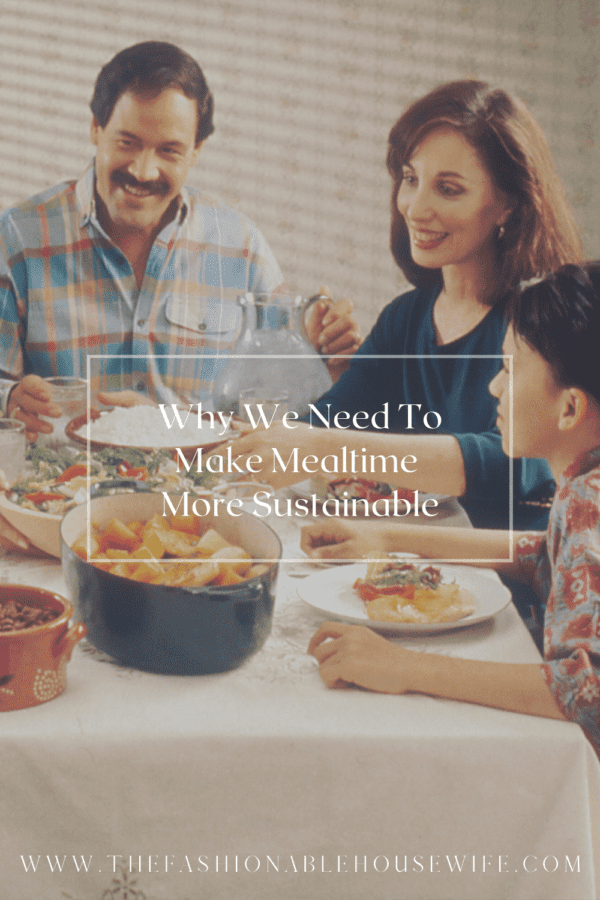
Taking care of the planet requires a joint effort between governments, businesses and individuals. Leading scientists warn people have only 11 years remaining to make a meaningful difference on climate change.
What can you do to do your part besides recycling and cutting back on unnecessary driving? Why not start in the kitchen? Your dining choices can go far in making your lifestyle more sustainable. Here’s why you need to make mealtime more sustainable and five ways to do so.
1. Cutting Down on Processed Foods
Processed foods harm your health and the planet. It may be convenient for you to pop a ready-made meal in the microwave, but many contain saturated and trans fats — particularly deep-fried foods and TV dinners.
White flour appears in nearly all such meals, a doubly problematic substance. The manufacturing process uses enormous energy to strip away the nutrient-rich bran and chaff, leaving you with empty calories that absorb quickly. Worse, processing results in some nasty byproducts like potassium bromate and alloxan. The combination is a one-two punch toward your health — and you contributed to emissions.
What’s the solution? It’s better for you and the planet to stick to whole foods close to their natural forms. When selecting flour, look for whole grain — it undergoes less processing and is far healthier for you and your family. It also provides nutrients and filling fiber.
2. Shopping at Farmers Markets
You can’t do better than your local farmers market regarding inexpensive whole foods. If you’re a savvy shopper, you can save even more pennies. Try going toward the end of the day when vendors begin closing shop. Many would rather sell their produce at a discount than take it home and risk it going bad before the next market day.
How does attending your local farmers market help the planet? It all comes down to emissions. Goods shipped from other parts of the country or globe must travel countless miles via planes, trains and trucks to reach their destination. Compare that to your farmers market, where individual vendors line their stalls with fruits and vegetables grown on their farms down the road.
3. Planting a Garden
Did you miss out on the pandemic gardening craze? It’s never too late to get out there with the kids and start digging in the good earth. You don’t produce emissions when your store exists in your backyard. Try reducing waste even further by learning to save the seeds from the products you buy, sprouting seedlings in the spring.
What if you don’t have a yard? You might have a sunny patio you can line with containers. Many species such as tomatoes and green beans thrive in such conditions. Plus, you don’t have to invest as much time, energy and water.
Why not get involved in a community garden project? Many such endeavors charge only a modest fee for admittance, giving you access to a dedicated plot. Better yet, you can always find someone to water your crops when you go out of town — that’s the beauty of people working together to make the world cleaner and greener.
4. Cutting Back on Meat Products
People could solve multiple problems by cutting back on their meat consumption. There’s a housing crisis in America, but 77% of available agricultural land is used for cattle, pork and chickens. Converting some of the space to tiny home communities full of gardens — and perhaps a few chickens — could help end homelessness and lift those struggling to afford rent out of hardship.
It may sound funny, but cows emit a lot of methane. This gas is 25 times more efficient at trapping heat in the atmosphere, contributing to planetary warming.
Do you have to go vegan? You don’t have to get that extreme — reducing your overall meat consumption will help. Celebrate meatless Mondays and double-up by adding a pescatarian fish Friday. It’s okay to throw in the occasional vegetarian dish midweek, too. Who doesn’t love spaghetti with marinara sauce or fettuccine alfredo?
5. Reducing Food Waste
Food waste also contributes to global warming. While all organic waste eventually breaks down, the conditions in landfills don’t allow it to do so. Instead, it converts into methane gas — and you already know what trouble that causes.
Fortunately, anyone with a garden can enrich their soil and save money at the nursery by composting. You can find or build inexpensive bins to fit your lifestyle. There are even countertop models if you only have a few houseplants.
The trickiest part may be learning what to include. Plant-based scraps are fine, but there are a few items you should not add to your compost. You can put in untreated wood, finely chipped, non-glossy paper, unbleached coffee filters and organic tea bags. Avoid adding animal waste and meat products besides bedding from vegetarian animals like hamsters and rabbits.
Making Mealtime More Sustainable
The race is on to save the planet. What can you do to pull your weight? Try making a few changes in how you eat.
Try the five tips above to make mealtime more sustainable. You and your family will eat healthier, save money and know you’re doing your part to heal the climate crisis.



